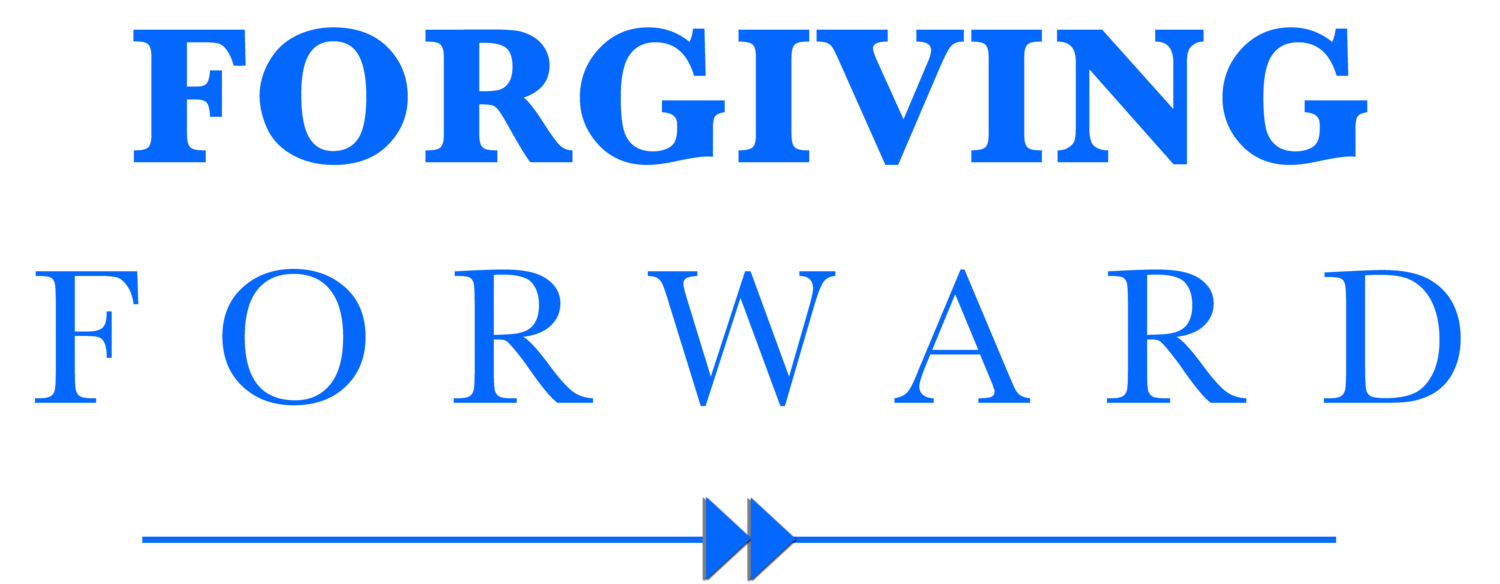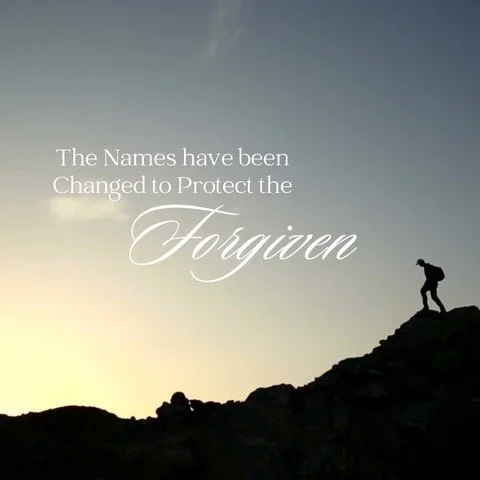You’re Confirmed!
Thank you! We are thrilled to welcome you to the forgiveness revolution which is helping people experience the freedom of the Gospel through the power of forgiveness.
READ MORE ABOUT FORGIVENESS BELOW
Our passion here at Forgiving Forward is to help people experience the freedom of the Gospel through the power of forgiveness. There are multiple ways we work at accomplishing this, but perhaps our most effective way is through our one-on-one coaching.
Do you remember the day you accepted Christ as your Savior? Do you remember the joy you felt knowing that you had been forgiven—that Christ loved you so much that He took the penalty for your sin, and with the Holy Spirit given to you as a seal, you would never be separated from Him? (Ephesians 1:13-14) Do you remember your experience of moving from Death to Life?
In Psalm 51:12, David pleads with God, “Restore to me the joy of Your salvation.” Why would David, the one Scripture refers to as a “man after God’s own heart”, ask for that? Because David had sinned—grievously—by committing adultery and murder, and the weight of his guilt had crushed his spirit. His sin stole his joy. In Psalm 32:3–4, he reflects on that same experience: “When I kept silent, my bones wasted away through my groaning all day long.” Sin is ultimately against God, not us, but that sin deeply wounds us and robs us of joy.
In 1949, President Harry Truman declared May Mental Health Awareness Month to raise awareness and educate the public about mental illnesses, the realities of living with these conditions, and strategies for attaining a greater measure of mental health and wellness.. The question that begs itself is this…is it working? After 76 years of devoting a full month to the mental health of the people of our nation, one would think we are better off today than in 1949. But are we?
People all over our nation are struggling. It is estimated that in 2025, approximately 1 in 5 U.S. adults will experience a mental health condition; 1 in 20 will experience serious mental illness; 60% of teens will report experiencing some form of mental health challenge, and 2/3 of employees will experience some form of burnout in the workplace. In the midst of the struggle, people are paying big money to find answers. The United States spends a staggering $282 billion on mental health issues annually. Counseling centers are constantly filled, and many people spend years in therapy. Years! One would think that after years of counseling, eventually someone would get healthy. But that is not the case in most situations. Yet people keep going week after week, hoping against hope that they’ll eventually get free, but never really expecting to and therefore never actually getting there.
There are sins in our culture that are considered unforgivable. It’s a growing list! In fact, there are certain offenses that violate common sensibilities when we forgive them. Forgiving these things can actually offend those closest to us so much that they will often try to talk us back into unforgiveness. We have actually witnessed people coerced into repenting of their forgiveness, which brings the torment back to a more intense level. It doesn’t happen often, but when it does, the results are heartbreaking.
Forgiveness is such a central part of the Gospel message that no true believer would ever say that forgiveness is a bad idea. We often meet with people who believe that they have forgiven yet are still very much in torment, which is an indicator that they have, in fact, not forgiven. Much of the teaching that is out there about forgiveness, including from Christian sources, comes from a flawed secular foundation. Yet true forgiveness always produces freedom. So how do we know when we have truly forgiven? We can be assured that we have forgiven when we forgive as God forgave us.
We live in an incredibly independent culture. “Mind your own business and stay out of mine” is a motto many, if not most, people live by. But what if that’s not God’s way? What if, rather than being independent, God has designed us to be interdependent? What if we really are our brother’s keeper?
Each family member who spoke in court that day expressed a grace that can only be found in the Gospel. And the world noticed. While some criticized the decision to forgive so quickly, most people sat in awe of the families’ choice to forgive, and, for the most part, the Charleston community followed their lead. Instead of returning hate and anger with hate and anger, love and mercy prevailed. The result was a climate that allowed the massacre to be denounced by all sides while reasoned and gut-level conversations about racial division led to substantive dialog and decisions. Instead of a race war, actual healing and reconciliation took place.
Toni was wrapping up her summary of the Forgiving Forward message as I returned. I looked at George and said, “Do you want to be free from your torment... Now? Will you allow me to coach you to forgive your son right here on the beach?” With tears in his eyes he quietly said “Yes. Please help me.” I moved my beach ottoman over by George’s chair and gently coached him to forgive his son for taking his own life and for all the wounds that decision had caused. I then helped him come to terms with his anger towards God and we watched as George’s entire countenance changed as his tears of sorry became tears of release.
In a simple but hard ten-minute span of time, we witnessed 17 years of torment drop off of Brad. Brad reached out to us, after someone on a social media site, had recommended our book Forgiving Forward to him. For 17 years Brad had been seeking help from any person, any source, any place—including social media, that would help him get free of the torment that gripped him day and night. “It’s the first thing I think about when I wake up in the morning and the last thing I think about when I go to bed at night.”
Many people ask, “How can I forgive them when I know that it’s going to keep happening?” That is not an insignificant question. We all have those “repeat offenders” in our lives that wound us on a regular basis. How long do we “put up with it?” Isn’t there a limit to how often I should forgive?
In every movie about forgiveness that I have seen, at some point in the storyline, the main character struggling with forgiving reaches a crisis point. Standing at the end of a dock or in the woods or alone in a room, they scream in desperation, “I don’t know how to forgive!”, or something to that effect. The scene shifts to one in which the character, having forgiven, is now at peace. What we don’t see is HOW he forgave. Specifically, what did he do? The how is important. Wanting to forgive is not the same as choosing to forgive.










